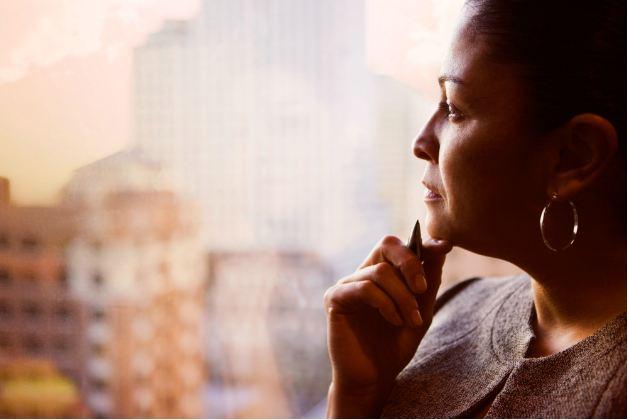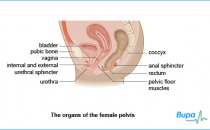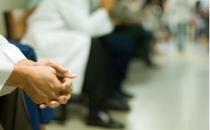Depression

This factsheet is for people who have depression, or who would like information about it.
Depression is a condition in which people may have low mood, a loss of interest in everyday activities, feelings of low self-worth, a lack of energy and poor concentration, all of which last a long time.
About depression
Symptoms of depression
Complications of depression
Causes of depression
Diagnosis of depression
Treatment of depression
About depression
Around one in five people in the UK have depression at some point in their lives. People are affected by depression at any age.
Depression is characterised by a number of symptoms including a loss of interest and enjoyment in the ordinary things in life.
It’s normal to have days or weeks when things aren’t going right and you feel unhappy. You’re said to have depression when your feelings don’t go away quickly and the symptoms start to interfere with your everyday life.
Types of depression
There are a number of ways to categorise depression. You may hear it referred to in terms of severity.
- Mild depression. This doesn't usually stop you leading your daily life but makes everything harder to do and seem less worthwhile.
- Moderate depression. This has a significant impact on your daily life, and you may have more symptoms than people with mild depression.
- Severe depression. This makes you feel uninterested in doing anything – daily activities are almost impossible.
There are also specific forms of depression, which include the following.
- Dysthymia. This is mild depression, lasting at least two years.
- Bipolar affective disorder – also known as manic depression or just bipolar disorder. This is a condition which causes mood swings. Your mood varies from excitement to depression and despair. You may also have hallucinations.
- Seasonal affective disorder (SAD). This is a type of depression with a seasonal pattern, occurring most commonly in the winter months.
- Postnatal depression. This develops two to three weeks after childbirth and lasts for months or even years.
Symptoms of depression
If you have depression, you may have a number of different symptoms including:
- a continuous low mood, which may be worse in the mornings
- feeling irritable
- crying a lot
- a loss of interest in your social life
- a loss of self-confidence
- a lack of energy
- tiredness and poor concentration
- difficulty in making decisions
- feeling helpless, worthless or hopeless
- feeling guilty
- thoughts about death and suicide
- anxiety
- a loss of sex drive (libido)
- trouble sleeping – possibly taking one or two hours to go to sleep or waking up earlier than usual
- disturbed eating patterns – either loss of appetite or eating too much
- unexplained or worsening aches and pains
- physical slowness
Complications of depression
At least half of the people who have an episode of severe depression will have at least one more episode. You’re more likely to have several episodes of depression if you’re under 20 or of an older age.
Depression can also be associated with suicide: nearly two-thirds of people who commit suicide have depression.
Causes of depression
Depression varies from person to person and everyone’s experience is different. The exact cause of depression isn't fully understood at present, but there seem to be certain factors that make a person more likely to develop depression.
Factors that may make you more likely to develop depression can include:
- a poor parent–child relationship in early life
- parental divorce in childhood
- bereavement
- relationship breakdown
- physical and/or sexual abuse in childhood
- having a neurotic personality
- having a long-term or serious illness like diabetes or heart disease
- a family history of depression
- poverty
- homelessness
- unemployment
- gender (women are more prone to depression than men)
Diagnosis of depression
If you’re depressed, recognising the problem is the first, yet hardest, step. Often others around you may suggest that you seek help. If you take that step and visit your GP, you will find the support and treatment you need to stop depression from taking over your life.
Your GP will ask you about your home life, your relationships, any previous experience of depression, and whether you have had suicidal or self-harming thoughts. He or she will ask you about your symptoms, their duration, and how much they are affecting your everyday life. Your GP may also ask you to fill in a questionnaire about your symptoms.
Most people with depression are treated by their GP. However, some people with severe or problematic depression are referred to a psychiatrist – a doctor who specialises in mental health.
Treatment of depression
There are a number of treatments for depression. The two main treatments are talking (psychological) therapies such as counselling, and antidepressant medicines. Your treatment will depend on how severe your depression is.
Self-help
Doing some exercise in addition to your medication and/or counselling may help your symptoms. Try a few sports or activities to find something you enjoy, and that you can keep doing in the long-term. Relaxation and meditation may also help your symptoms.
If you’re depressed it can be tempting to use alcohol to enhance your mood. If you drink alcohol, it’s important that you don’t drink more than the recommended guidelines because it can affect your sleep and your mood, and can lead to a range of long-term health problems including liver damage.
Medicines
Antidepressant medicines aren’t always needed in mild or moderate depression. A large number of people with depression get better within six months without medication.
There are several different types of antidepressant medicine available. All can have side-effects, so it's important to find the medicine that suits you best. Always ask your doctor for advice and read the patient information leaflet that comes with your medicine.
Tricyclic antidepressants (TCAs) alter your brain chemistry (delaying the absorption of the natural brain chemicals noradrenaline and serotonin, so that there is more of these chemicals in your brain for longer). This is thought to help with depression. TCAs can have troublesome side-effects, including increased appetite, weight gain, dizziness, sweating, drowsiness and shaking. Dosulepin and clomipramine are examples of TCAs.
Monoamine oxidase inhibitors ( MAOIs ) such as phenelzine, are used less frequently than other antidepressants because they can cause serious side-effects if you eat certain foods such as cheese. Your GP will explain these side-effects and give you a card with a list of foods to avoid.
Selective serotonin re-uptake inhibitors (SSRIs ) such as fluoxetine and paroxetine increase the level of serotonin in the brain. This in turn appears to lift your depression. SSRIs tend to cause fewer side-effects than other antidepressants, so many people find them easier to take. They are often the first type of antidepressant- used.
There are many other types of antidepressant, which work in a different way. These include venlafaxine and mirtazapine. They can be useful for people who experience side-effects with other medicines, or people who have specific symptoms.
Taking your medication for at least six months after you start to feel better can help prevent the depression coming back. Ask your GP for more information on each medicine. When stopping antidepressant medication, your GP will usually reduce your dose gradually over at least four weeks. Don’t stop taking your medication suddenly because you may experience withdrawal reactions.
Talking therapies
Your GP can often arrange for you to have talking therapy as part of your treatment.
Counselling is usually a one-to-one session where you have a chance to express your feelings and problems, with the counsellor listening and asking questions. There are many different types of counselling, but generally you won't be told what to do about your feelings. Instead, a counsellor listens to what you have to say and then helps you to try and see your feelings and problems in a different way. Counsellors may be based at your GP surgery. If not, your GP will be able to refer you to an appropriate organisation. You will normally have a fixed number of sessions – often six to 12.
There are also more structured types of talking therapy. These include cognitive behavioural therapy (CBT) and psychodynamic psychotherapy (a type of talking treatment that goes more deeply into childhood experience and significant relationships).
The type of talking therapy you have will depend on what's available, your preferences, and how severe your depression is.
Complementary therapies
St John's wort (Hypericum perforatum) is a complementary medicine that can help mild or moderate depression. You can buy this as tablets in health food stores and pharmacies. You should always ask for advice from your GP or pharmacist before taking St John's wort, especially if you are also taking prescription or over-the-counter medicines (including antidepressants). This is because St John's wort can interact with some other commonly used medicines, such as the contraceptive pill.
Hospital treatment
Most people who have depression can be successfully treated without being admitted to hospital. However, if you have severe depression and have suicidal thoughts, you, your family, or your psychiatrist may feel you need the shelter and protection of a hospital.
Before going into hospital, you may have a mental health assessment. This involves talking with your doctor and answering some questions about how you are feeling.
Electroconvulsive therapy (ECT)
ECT is a controversial treatment because it’s not absolutely clear how it works. A side effect of ECT is memory loss.
ECT often works very quickly, greatly lifting your depression. However, it doesn’t appear to stop depression coming back in the future.
This treatment is only considered if you’re severely depressed or if treatment with medicines hasn’t worked for you. ECT is always given in hospital under general anaesthesia, which means you will be asleep during the procedure and feel no pain. It works by passing an electric current through the brain and causing a seizure. People tend to have ECT sessions twice a week for six to 12 sessions.
This section contains answers to common questions about this topic. Questions have been suggested by health professionals, website feedback and requests via email.
What can I do to help someone with depression?
Can yoga help depression?
Does acupuncture work for depression?
What can I do to help someone with depression?
If you know someone who has depression, it’s important for you to be reassuring, to listen but not judge, and to be there to talk to. This will be an invaluable help and support for him or her through depression.
Explanation
When people are depressed, they often feel helpless, hopeless and alone. Being affectionate and spending time with your friend or relative will help him or her feel better about themselves.
People with depression often isolate themselves from others. They may stop seeing friends and relatives. Try to keep in touch regularly, and visit if you can.
Encourage the person to seek help and advice. Treatment from his or her GP can improve symptoms and help them overcome depression.
Reassure the person that he or she is important to you, and that they can get better with treatment.
It can be difficult to spend a lot of time with someone who is very depressed, you may start to feel down too. Have some time out as well, and talk to others if you feel frustrated. Support from specialist groups or your GP may also be helpful.
Can yoga help depression?
There is little evidence to specifically recommend yoga for depression but some research does indicate that it may have some benefits.
Explanation
There are different types of yoga and some may be more helpful than others. Ashtanga yoga, for example, can be quite dynamic and fast-paced, while other forms such as Hatha yoga, with mindfulness meditation, are more focused on meditation and breathing.
Doing some exercise in addition to your medication or counselling may help your symptoms.
Does acupuncture work for depression?
There isn’t enough medical evidence to recommend acupuncture as a treatment for depression.
Explanation
Acupuncture has been part of traditional Chinese medicine (TCM) for thousands of years but only in the past 30 years has it become integrated into general medicine. It's used mostly as a complementary treatment (one given alongside conventional treatments).
It’s thought that acupuncture needles stimulate nerve endings and alter the way your brain functions. However, there isn’t enough evidence to recommend acupuncture as a treatment for depression.
Taking time out to do things that make you feel good may help lift your mood. Eating a healthy diet, getting enough sleep, and making the time to rest, relax and exercise are all important ways to look after yourself.
Further information
Samaritans
08457 90 90 90
www.samaritans.org
Mind
0845 766 0163
www.mind.org.uk
The Depression Alliance
0845 123 23 20
www.depressionalliance.org
Mental Health Foundation
www.mentalhealth.org.uk
Sources
- One in five. The Depression Alliance. www.depressionalliance.org, published 2003
- Depression: the treatment and management of depression in adults. National Institute for Health and Clinical Excellence (NICE), October 2009. www.nice.org.uk
- Silva de Lima M, Moncrieff J, Soares B. Drugs versus placebo for dysthymia. Cochrane Database of Systematic Reviews 2000, Issue 4. doi: 10.1002/14651858.CD001130
- Depression terms you might hear. The Depression Alliance. www.depressionalliance.org, accessed 19 February 2010
- Postnatal depression. The Royal College of Psychiatrists. www.rcpsych.ac.uk, published August 2007
- Alcohol and depression. The Royal College of Psychiatrists. www.rcpsych.ac.uk, published June 2008
- Anafranil. The electronic Medicines Compendium (eMC). www.emc.medicines.org.uk, accessed 4 March 2010
- Making sense of antidepressants. Mind. www.mind.org.uk, published 2008
- Treatments for depression. The Depression Alliance. www.depressionalliance.org, accessed 4 March 2010
- Making sense of counselling. Mind. www.mind.org.uk, published 2008
- Linde K, Berner MM, Kriston L. St John's wort for major depression. Cochrane Database of Systematic Reviews 2008, Issue 4. 10.1002/14651858.CD000448.pub3
- Making sense of electroconvulsive therapy (ECT). Mind. www.mind.org.uk, published 2008
















